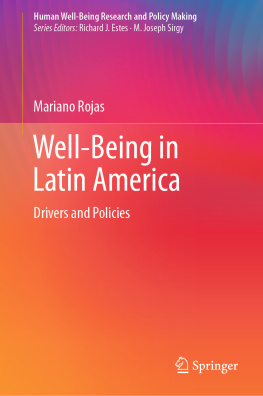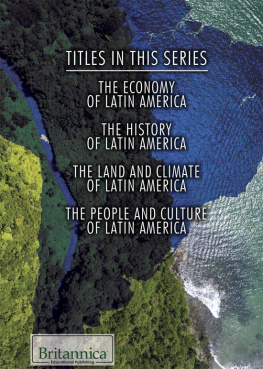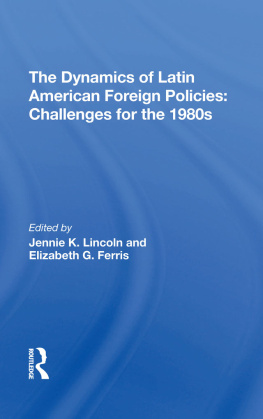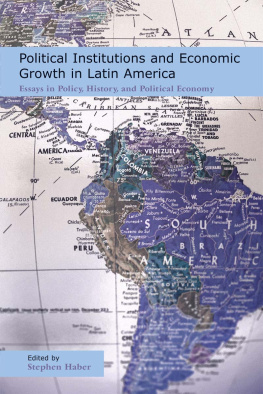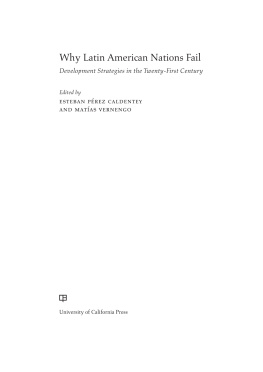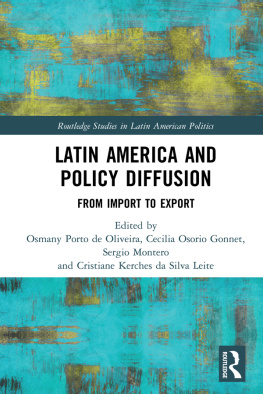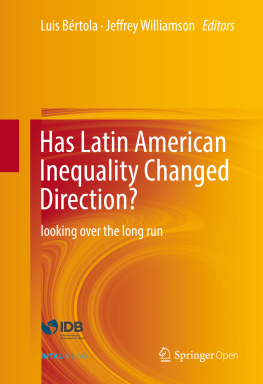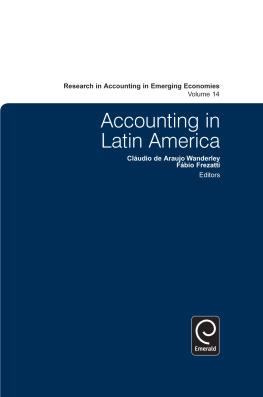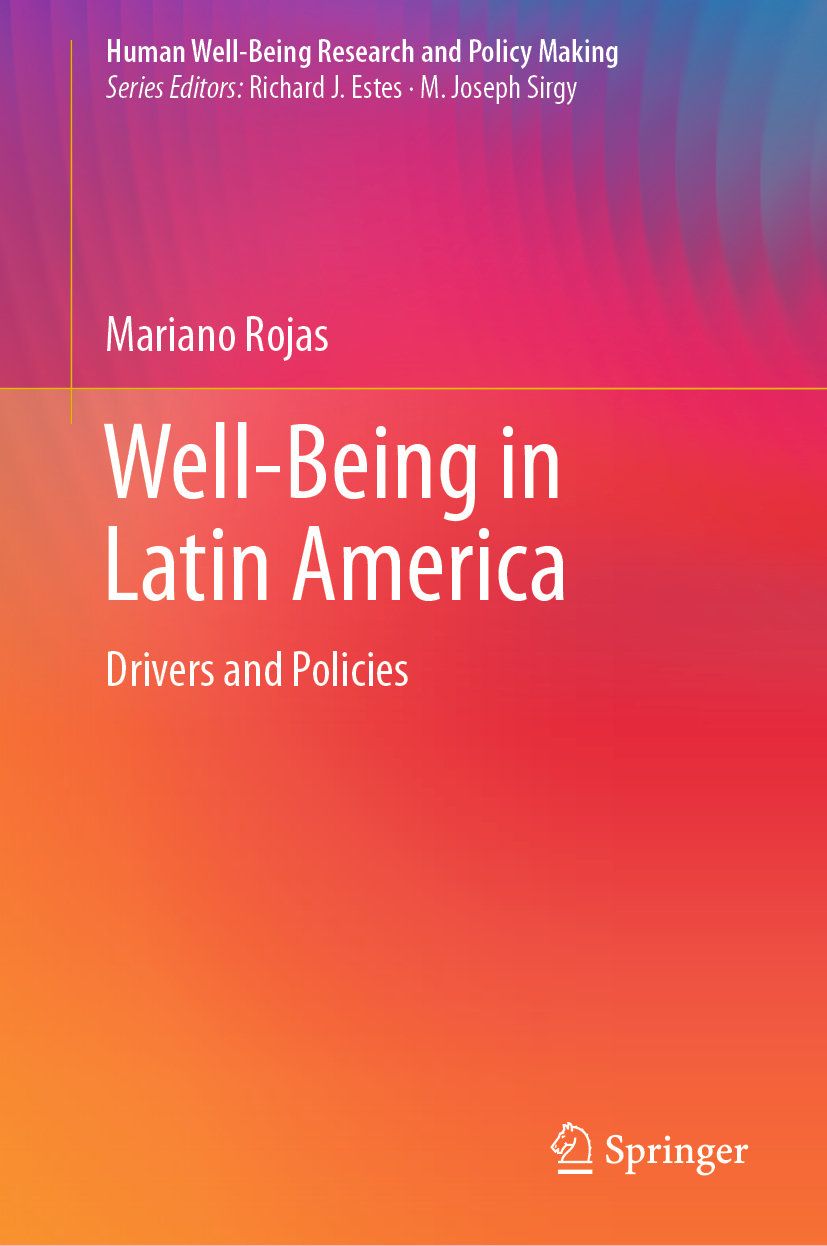Mariano Rojas - Well-Being in Latin America: Drivers and Policies
Here you can read online Mariano Rojas - Well-Being in Latin America: Drivers and Policies full text of the book (entire story) in english for free. Download pdf and epub, get meaning, cover and reviews about this ebook. year: 2019, publisher: Springer, genre: Politics. Description of the work, (preface) as well as reviews are available. Best literature library LitArk.com created for fans of good reading and offers a wide selection of genres:
Romance novel
Science fiction
Adventure
Detective
Science
History
Home and family
Prose
Art
Politics
Computer
Non-fiction
Religion
Business
Children
Humor
Choose a favorite category and find really read worthwhile books. Enjoy immersion in the world of imagination, feel the emotions of the characters or learn something new for yourself, make an fascinating discovery.
- Book:Well-Being in Latin America: Drivers and Policies
- Author:
- Publisher:Springer
- Genre:
- Year:2019
- Rating:3 / 5
- Favourites:Add to favourites
- Your mark:
Well-Being in Latin America: Drivers and Policies: summary, description and annotation
We offer to read an annotation, description, summary or preface (depends on what the author of the book "Well-Being in Latin America: Drivers and Policies" wrote himself). If you haven't found the necessary information about the book — write in the comments, we will try to find it.
This book provides an overview of factors fostering well-being in Latin America and discusses many threats to well-being in the region. The book assesses the current well-being situation in Latin American countries and offers an explanation based on its many drivers, such as family arrangements, kindness and affection of interpersonal relations, economic situation, education regimes, political institutions, poverty, income inequality, crime and violence, and the weakness of political institutions.
The book provides a framework to fully understand the drivers behind high well-being, including the challenges and opportunities that public policy faces in the procurement of peoples well-being. The book provides relevant material for policymakers and social scientist interested in the procurement of well-being.Mariano Rojas: author's other books
Who wrote Well-Being in Latin America: Drivers and Policies? Find out the surname, the name of the author of the book and a list of all author's works by series.

